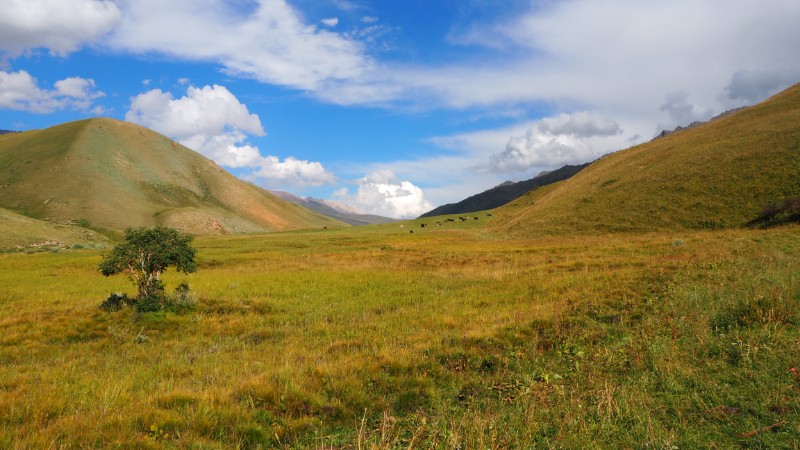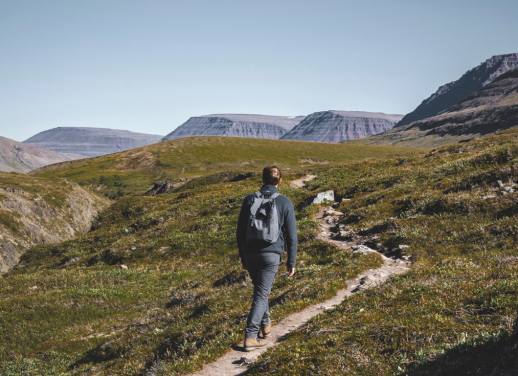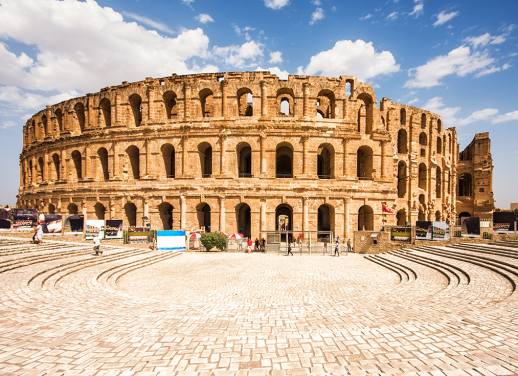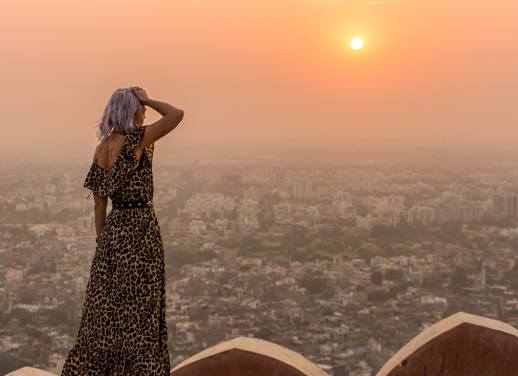When I told my friends and family in Australia that I was going to Kyrgyzstan they looked at me, dumbfounded: “Where is that?”. Or they assumed I meant Kazakhstan and made a quip about Borat.
What they didn’t say, because they didn’t need to, because I could see it in their eyes, was: “Why on earth are you going there?”
Then they saw my photos, which I posted to Facebook while I was travelling.
They saw the snowy peaks and green river valleys of the Tian Shan Mountains, the range that straddles the border between China and Kyrgyzstan, linking the Altai Mountains of Mongolia with the Pamirs of Tajikistan.
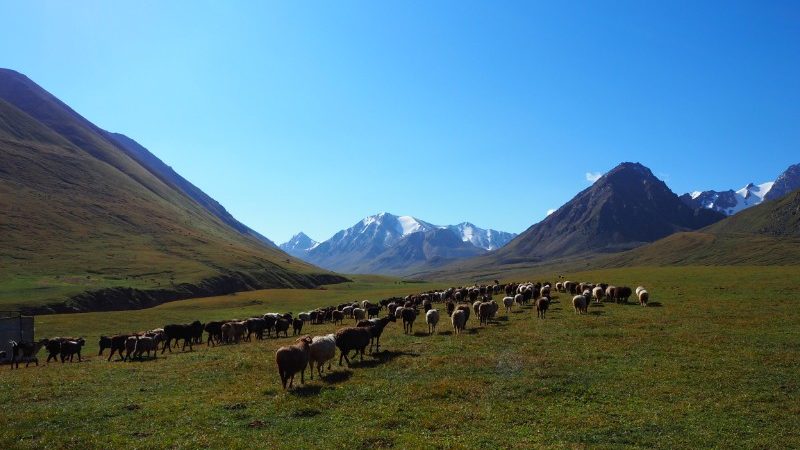
Goats wander across the plain
They saw herds of sheep sprinkled across the steep hillsides, grazing or trotting towards higher pastures, a boy shepherd hot on their heels. They saw horses grazing, and horses playing, and two foals that I’d managed to snap, heads inclined towards each other, looking straight at my camera. They saw a woman pasteurising horse milk, a man churning butter, a group of musicians who had gathered one afternoon at a yurt where I had stayed, to celebrate my host’s 50th birthday. They saw yurts aplenty – close-ups of their felt-embroidered doors, and panoramas taken from afar, the nomad’s tents sitting like mushroom caps beneath the blue, blue sky. They saw, as I saw, Lake Son Kul’s impossible glitter.
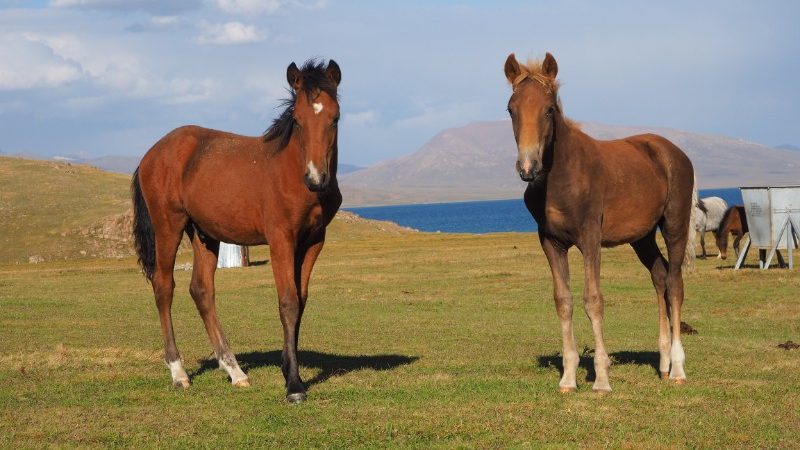
Two foals
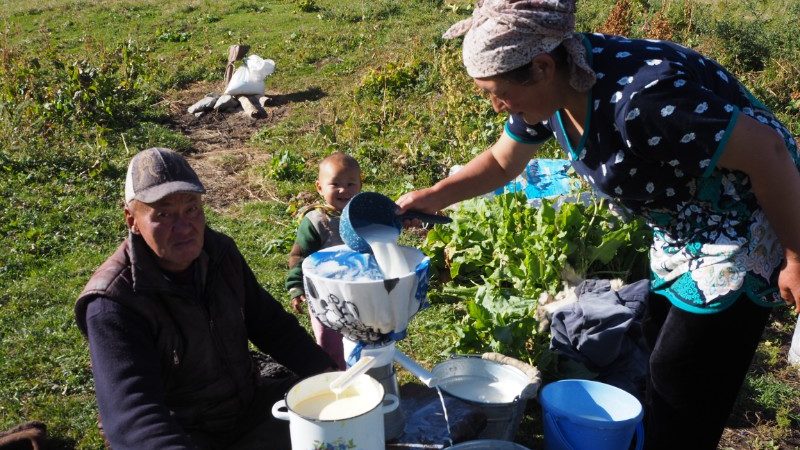
Making cream and butter
They saw what I had seen. And they began to understand. Kyrgyzstan – as difficult to pronounce as it is to place on a map – is somewhere special. (Hint: it’s in Central Asia, bordered by Uzbekistan, Kazakhstan, Tajikistan and China, and it’s pronounced kur-gist-AAN).
What they didn’t see, and what you can’t know, unless you actually visit the country, is that the photos only tell part of the story. The only way to understand what it’s really like to visit Kyrgyzstan is to experience it for yourself.
Here are a few of the things I discovered while I was there (which you could too, if you go):
The World Nomad Games are amazing
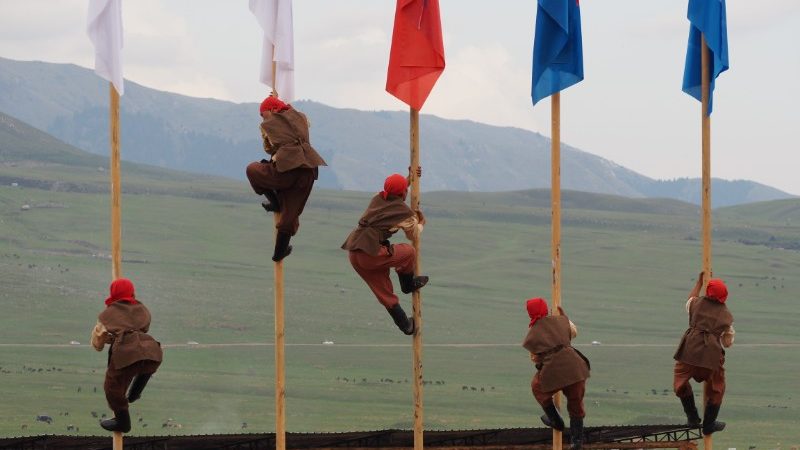
Flagpole climbing at the World Nomad Games
I planned my trip to Kyrgyzstan for September 2016 without knowing that the World Nomad Games were even on. What luck! Part festival, part Olympics, the World Nomad Games takes place on the shores of Lake Issyk Kul and is a biennial celebration of Central Asian nomadic culture.
The sporting events, many of which involve the animal that the Kyrgyz most revere – the horse – are like nothing you’ve ever seen before. Kok boru (similar to polo but with a headless goat carcass instead of a ball), er enish (in which two men on horseback attempt to wrestle each other to the ground), and kyz kumai (catch and kiss on horses) are some of the highlights.
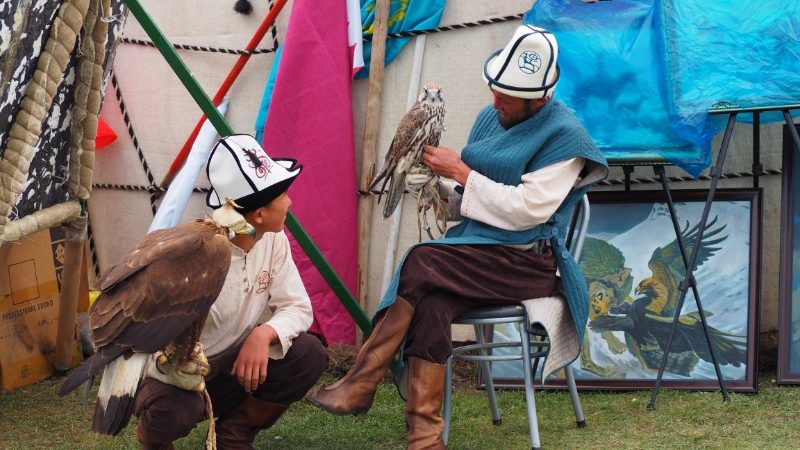
Two falconers shoot the breeze at the World Nomad Games
But probably the best thing about the Games is the cultural festival at Kyrchyn jailoo (Alpine meadow). Home to over 200 yurts for the duration of the Games, this is where you can see traditional activities like falconry and archery, mingle with nomads from all over Kyrgyzstan and beyond, stock up on handicrafts, take a horse taxi, and more.
The next Games will be held in September 2018. Get there before the rest of the world hears about it!
You can experience what nomadic life is really like
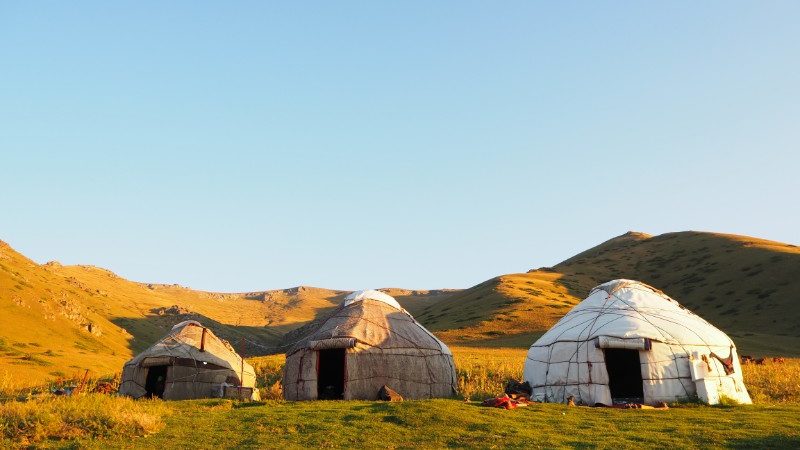
Yurt style
Around 80% of Kyrgyzstan is mountainous, and shepherds still spend the summer months in the jailoos (Alpine meadows), living in yurts while they tend to their flocks. In the traditional nomadic cultures of Central Asia, it is common for travellers to break their journey at a stranger’s yurt. So staying overnight in a yurt isn’t just for tourists – it’s central to the nomadic way of life.
An overnight stay in a yurt is a definite highlight of any visit to Kyrgyzstan. It is not luxe experience – you’ll sleep on thin horsehair mattresses piled up on the floor, and share the sleeping space with others – but I was always warm and cosy. The food was surprisingly good – freshly baked naan, simple soups and fresh salads, delicious homemade butter, cream and jam. You may or may not wish to partake in kumuz – fermented mare’s milk – which is mildly alcoholic and definitely an acquired taste.
RELATED: 6 REASONS WHY CENTRAL ASIA SHOULD BE ON YOUR TRAVEL RADAR
Kyrgyzstan is just like Switzerland (apparently), without the crowds
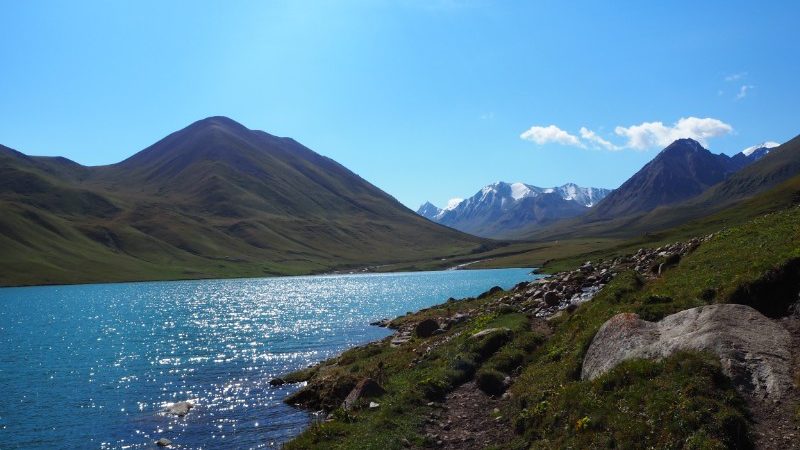
Kol Ukuk Lake
I’ve never been to Switzerland, so I can’t honestly say how it compares to Kyrgyzstan. But I did meet a lot of Europeans on my travels, including Swiss, who told me that the Alpine landscapes reminded them of home. They also told me that the trekking was so much better, mainly because there are fewer people.
None of this surprised me. While I had seen photos of the Kyrgyz landscapes before I arrived, it was only through immersing myself in the raw beauty of those mountains that I fully understood. The deep silence of the barely-populated pastures, the sun’s shimmer of Lake Son Kul, the spectacular smattering of stars each night are just some of what you can expect when you go trekking in Kyrgyzstan.
RELATED: WHAT TO EXPECT ON A TRIP TO TURKMENISTAN
Bishkek is laid-back, low-key and surprisingly cosmopolitan
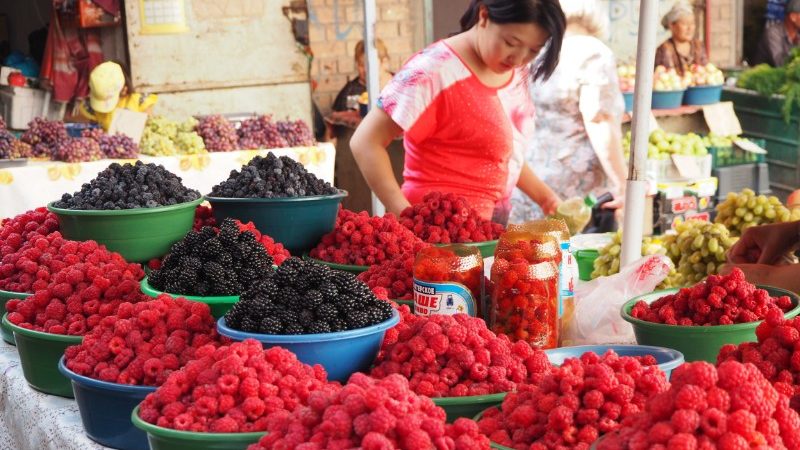
Fresh berries at the Osh Bazaar, Bishkek
The Kyrgyz capital is the kind of place where a woman might offer to share her taxi with you, insist that you don’t pay, speak to you in English (one of the eight languages she can speak) then invite you to her home in a village on the weekend – all in the course of a 15-minute ride across town.
While there isn’t a lot in the way of must-see sights, the city has its charms. I never quite managed to work out the public transport (all the signs are in Cyrillic, and I don’t speak Russian) but taxis are plentiful and cheap, even when a friendly local doesn’t offer to pay. The leafy boulevards and parks, which are a hangover from Kyrgyzstan’s days as a far-flung republic of the Soviet Union (1936–1991), also make Bishkek a great place for walking. Restaurants and cafes abound, offering a diverse range of cuisines, and pretty decent coffee. There’s even a hole-in-the-wall female-run microbrewery, the wonderfully named Save the Ales.
After visiting a country like Kyrgyzstan, you face the ultimate traveller’s conundrum: to keep it all to yourself, or to tell everyone you come across to go.
You should definitely go. Kyrgyzstan completely stole my heart. And I’m pretty sure it will steal yours too.
Explore Kyrgyzstan now on a small group adventure with Intrepid. Browse our range of trips here, or book your spot on our expedition to the World Nomad Games here.
All images by Melissa Fagan.

